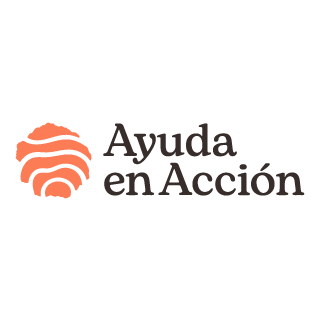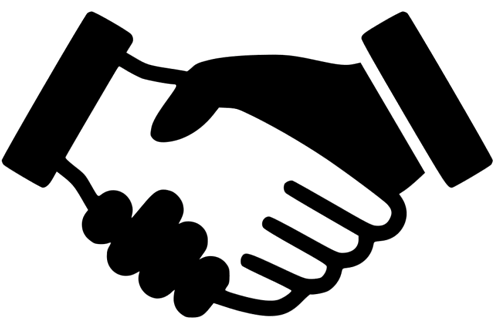

 Location: (Ethiopia)
Location: (Ethiopia) Vacancies: 1
Vacancies: 1 Work modality: On site
Work modality: On siteIntroduction:
Ayuda en Acción is a secular, non-partisan, non-governmental organisation established in 1981 with a global commitment to fight against poverty, inequality, and exclusion. Its headquarter is in Madrid, Spain. The organisation operates in 18 countries within Africa, South and Central America and Europe (Spain, Portugal). In Ethiopia, Ayuda en Acción supported a range of humanitarian and development interventions through local partners between 2002 and 2017; an independent country programme was established in 2018. Ayuda en Acción Ethiopia aspires to tackle poverty, inequalities and exclusion that perpetuate poverty. The organisation perceives women, men, girls and boys as the centre of its efforts in the country, giving it an impetus to strengthen people’s and institutions’ capacities to meaningfully contribute to development and dignified life of all in Ethiopia. To achieve its mission, Ayuda en Acción Ethiopia has worked in three regions of Ethiopia, namely Afar, Oromia and SNNPR in close cooperates with local partners, international research institutes, public agencies, and private sector actors.
Project description:
Funded by the European Union under grant EuropeAid/179149/DD/ACT/ET-1, the three-year The Empowering Futures for Youth and Women beyond Agriculture (EMPOWER) project aims to enhance livelihood security for vulnerable women and youth in Ethiopia by strengthening access to inclusive and green job opportunities. Implemented by a consortium led by People in Need (PIN), with co-applicants Ayuda en Acción (AeA) and Development Expertise Center (DEC), the project targets individuals transitioning out of agricultural and agro-pastoral livelihoods, as well as those remaining in the sector. Operating across multiple regions, PIN leads implementation in Oromia, DEC in Tigray, and AeA in conflict- and climate-affected areas of Afar National Regional State.
In Afar, Ayuda en Acción manages the project in Chifra (Zone 1), Ewa, Gulina (Zone 4) including Keluwan Roble Gabata TVET College, Abala (Zone 2) including Asale TVET College, and Asayita Polytechnic College. These areas face severe challenges from recurrent droughts, conflict, harmful traditional practices and socio-economic instability, which have disrupted traditional livelihoods and exacerbated gender inequalities. Women face systemic exclusion from decision-making, early marriage (average age 16.5), female genital mutilation (affecting over 90%), and barriers to education, training, and market participation. Women are also excluded from high-value chains such as honey, while their roles in dairy remain undervalued. Female-headed households, IDPs, returnees, GBV survivors, and women with disabilities experience intersectional vulnerabilities. In response to these challenges, the EMPOWER project aims to create sustainable, inclusive, and green job opportunities by strengthening local capacity in key agricultural and pastoralist value chains and improving access to technical and vocational education and training (TVET). Despite ongoing interventions, women and youth in Afar face persistent barriers—limited technical skills, financial services, and employment opportunities—that restrict access to markets, decent jobs, and quality education. To address this, Ayuda en Acción seeks a consultancy firm to conduct a gender analysis identifying structural, institutional, and socio-cultural barriers and recommending actionable solutions for women’s economic empowerment aligned with Ethiopia’s National Policy on Women and Afar Regional Gender Action Plans and regional priorities, EU Gender Action Plan III (2021–2025), Sustainable Development Goals (SDGs), particularly SDG 5, SDG 8, and SDG 16 and the AU Agenda 2063 and the Convention on the Elimination of All Forms of Discrimination Against Women (CEDAW) commitments.
Objectives of the study:
To conduct a comprehensive gender analysis in Afar and focusing project target woredas to identify structural, institutional, and socio-cultural barriers to women’s economic empowerment in education, employment, and market access and to provide actionable recommendations for gender-responsive interventions within the EMPOWER project. The findings will guide gender-responsive interventions within the project, ensuring alignment with local contexts, market demands, and inclusive green job creation.
Specific Objectives:
1: Identify and analyse gender-specific barriers—including discriminatory norms, cultural practices, institutional constraints, and conflict dynamics—that limit women’s access to TVET, productive resources, markets, and decent employment opportunities.
2: Assess the gender-responsiveness of TVET systems and training delivery, with emphasis on priority value chains (honey, poultry, dairy, soybeans, livestock fattening, solar energy, and fodder), and propose reforms to improve inclusivity and equity.
3: Examine private and public sector policies, institutional frameworks, and workplace practices influencing women’s recruitment, retention, career advancement, and participation in education, training, and the labour market, Integrating Conflict Sensitivity by mapping local conflict management and peacebuilding mechanisms
4: Document successful practices and generate actionable recommendations to strengthen gender-responsive policies, advocacy efforts, conflict-sensitive programming, and multi-stakeholder coordination platforms that promote women’s economic empowerment in Afar and beyond.
Methodology:
The consultancy is expected to adopt a mixed-method and participatory approach to ensure the analysis is comprehensive, inclusive (including disability), conflict sensitive and context-specific. The consultant is expected to come up with comprehensive analytical framework. The following approaches are suggested:
Scope and deliverables
Scope of Work:
The consultancy firm will conduct a comprehensive gender analysis to inform policy, advocacy, and programming under the EMPOWER project. The analysis will generate evidence on structural, institutional, conflict related and socio-cultural barriers limiting women’s participation in education, employment, and markets, and propose gender-responsive solutions to strengthen women’s economic empowerment.
The key tasks include:
Expected Deliverables
The consultancy firm is expected to deliver the following outputs:
Responsibility of Ayuda en Acción Ethiopia:
Guiding principle:
The Consultancy firm should adhere to the following underlying principles in addition to the approaches required for assessment and curriculum development.
Schedule
The study is expected to be completed within 40 calendar days. The preliminary calendar to develop the gender-inclusive market system assessment upon agreement, is outlined in the table below:

Minimum requirements to conduct the study:
Presentation of technical and financial proposal
The consultant is required to submit a signed Letter of Interest, including scanned stamped copies of technical and financial proposal.
The technical proposal shall include:
The financial offer shall include:
Line of reporting:
The Consultant Firm must report to the contact persons in Ayuda en Acción Ethiopia Program Director as per the schedule.
Payment schedule:
The payments are proposed as follows:
Process and criteria for Selecting the Best Offer:
The selection of the best proposal will be done by using the Combined Scoring method – where the qualifications, relevant experiences and methodology will be weighted a maximum of 70% and combined with the price offer which will be weighted a maximum of 30%. The technical part of the application will be assessed based on previous experience of knowing Afar context and doing similar activities with the previous clients.
The selection process includes shortlisting of candidate’s base based on submitted technical and financial proposal. Additionally, the top three shortlisted consultants will present methodologies and major deliverables to Ayuda en Acción Management and team of experts, which will determine the final selection.
The following technical elements will be considered:
How to apply:
The Consultant is expected to submit Letter of Interest, along with the scanned stamped copies of technical and financial proposal directly through (ONLY) the talent clue within 10 (Ten) consecutive days from the advertisement.
You may send your questions prior to submission to: Ermiyas Tadesse, Programme Director etadesse@ayudaenaccion.org or Bitsit Endale, Operations Director bendale@ayudaenaccion.org.
In all selection processes, we will consider the criteria of NO discrimination based on sex, race, skin colour, religion, political ideas, social origin, sexual orientation, age, etc., providing a transparent and equal opportunity process for all candidates, as stated in our Code of Conduct. "Treating all people with respect and rejecting any kind of harassment, discrimination, intimidation, exploitation or any other action against Human Rights".
At Ayuda en Acción we have zero tolerance for behavior related to sexual exploitation, sexual abuse, and/or sexual harassment, which is why, in accordance with our Child Protection Policy, we are committed to carrying out a series of checks prior to hiring by requesting information from previous employers through the Misconduct Disclosure Scheme (The Misconduct Disclosure Scheme misconduct-disclosure-scheme.org) no the event that said employers are members of this platform.
In addition, Ayuda en Acción also undertakes to provide the other members of the MDS with the information corresponding to this type of event on employees who have worked for the Organization. Therefore, by submitting this application, the applicant accepts and authorizes the performance of these pre-employment checks in order to continue in the selection process and the conservation of his/her data for subsequent consultation by MDS members.
The information extracted from this application for references will be used in a Private, Confidential and Internal manner and will only be used for the selection processes of Ayuda en Acción in which the candidate has registered.
Therefore, by submitting this application, the applicant accepts and authorizes these checks to be carried out in order to continue in the selection process.
In addition, it will be compulsory to present the "Negative Certification of the Central Registry of Sex Offenders" prior to the incorporation.